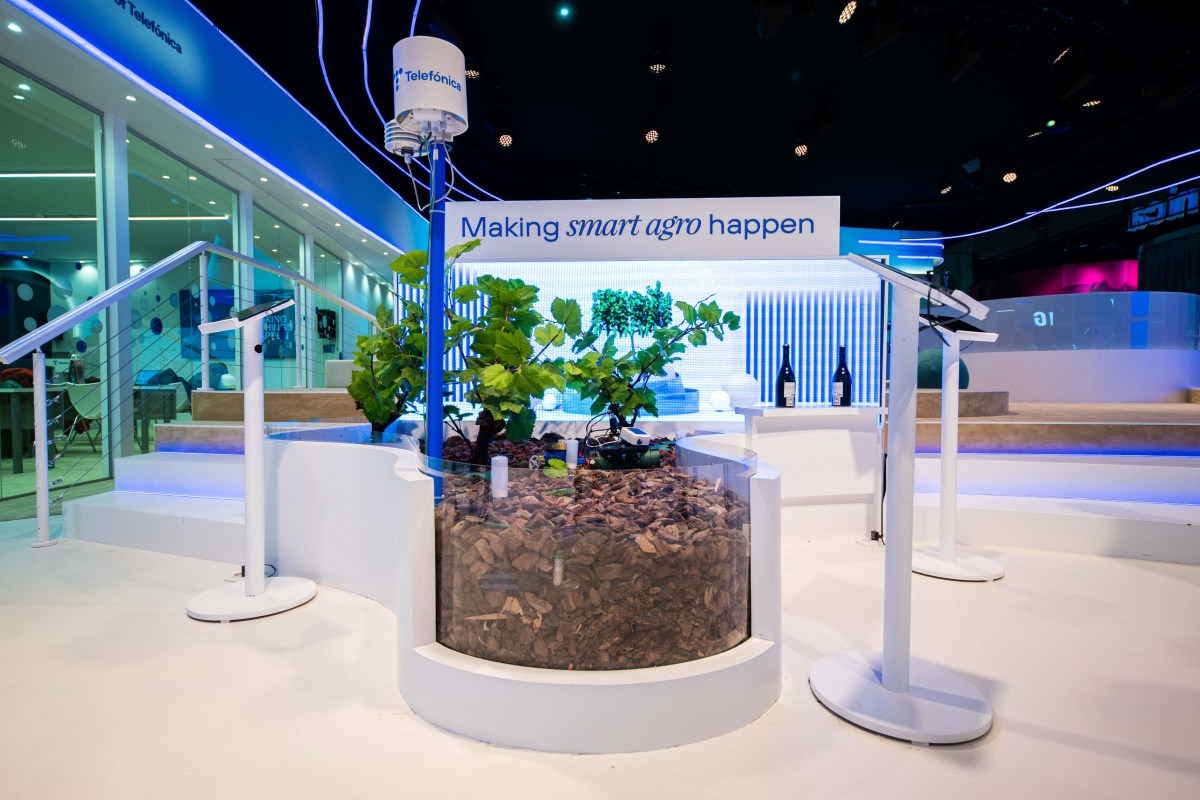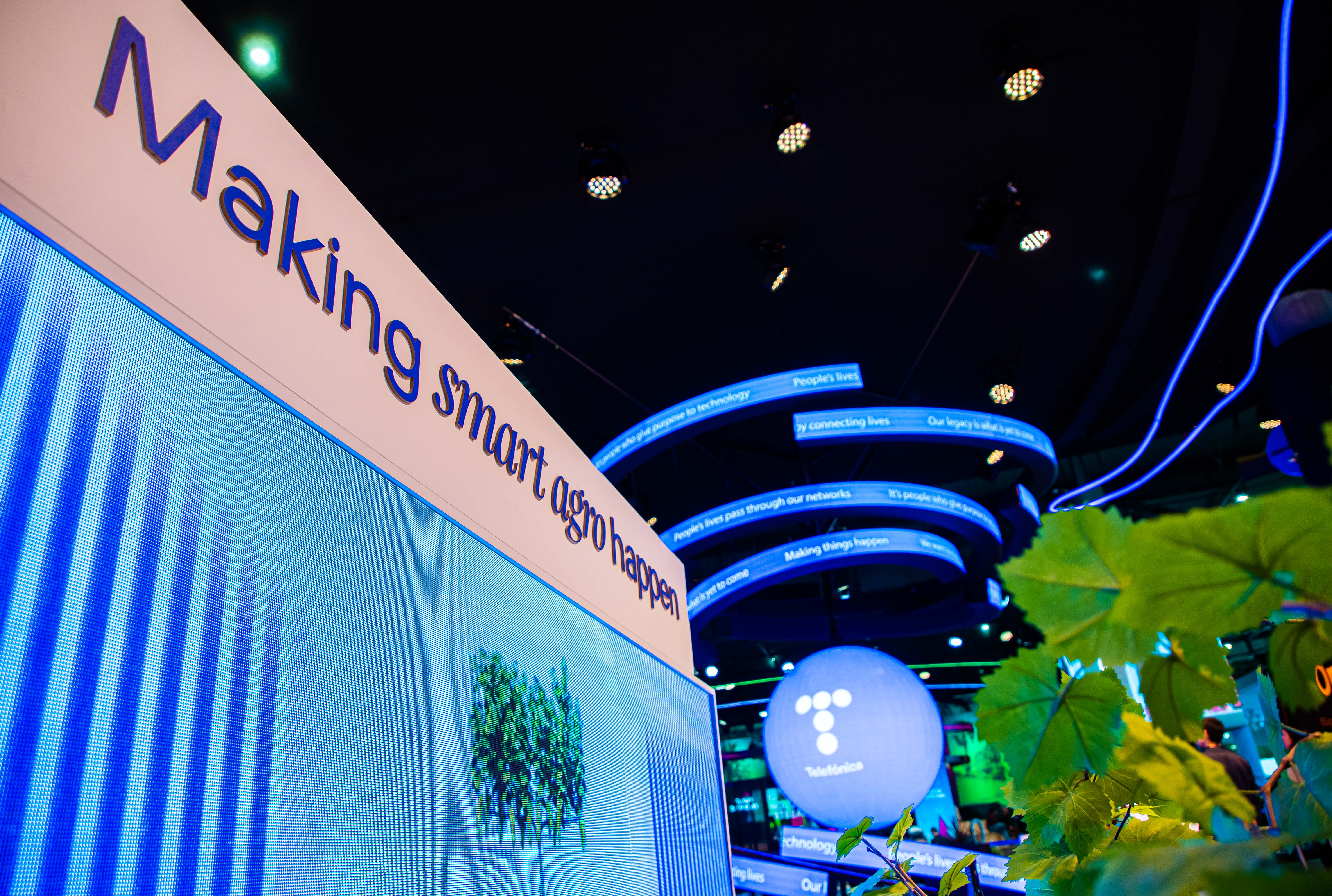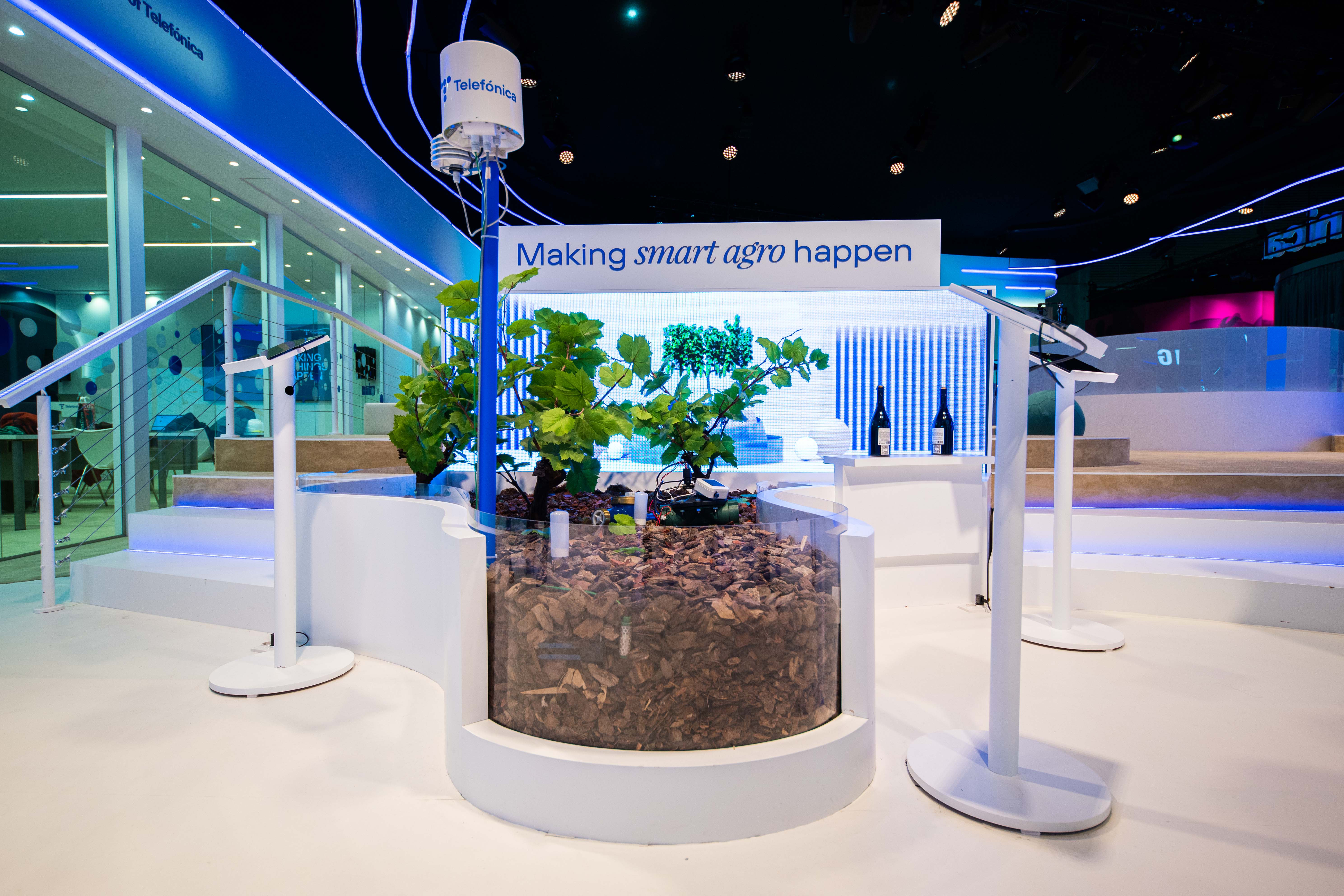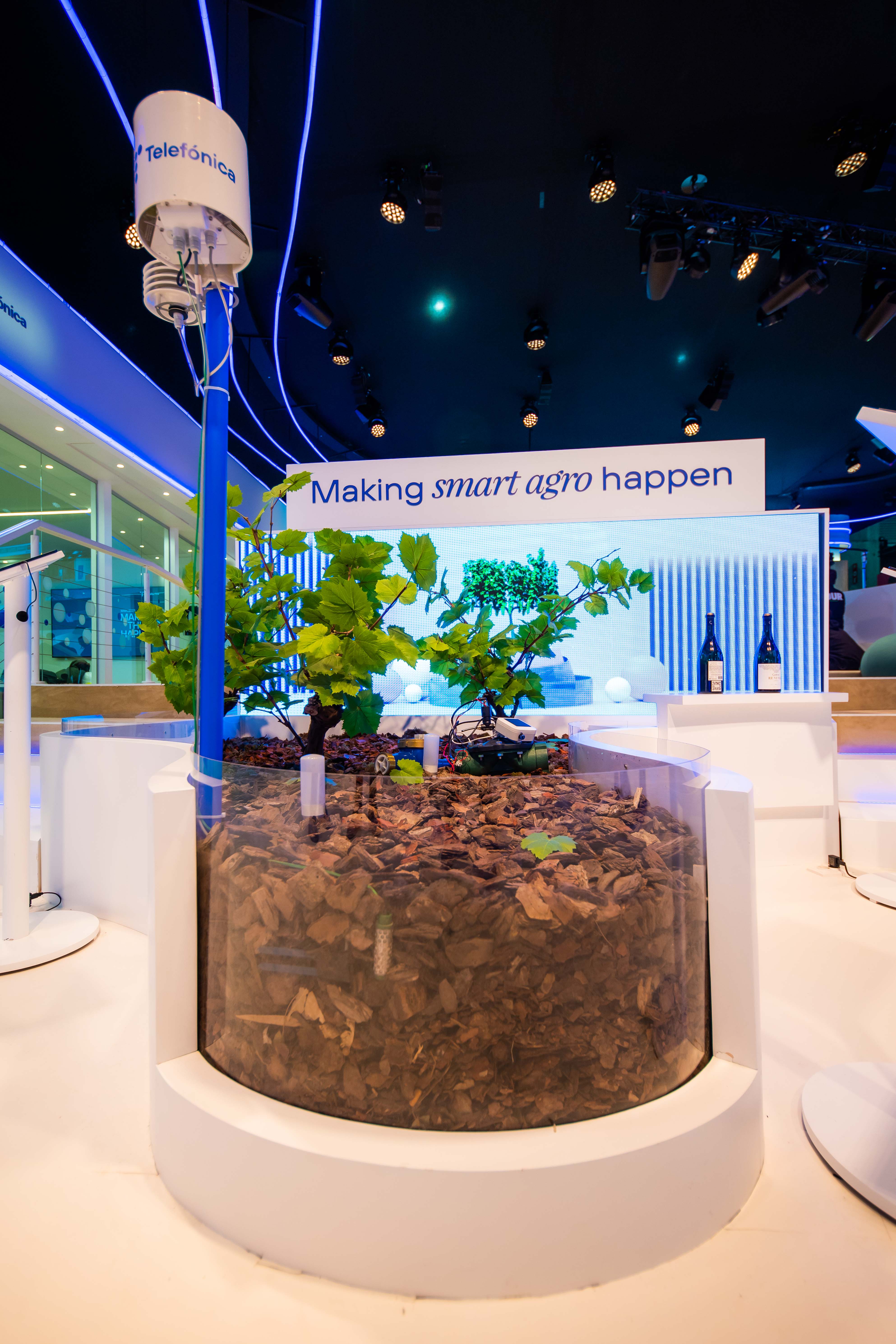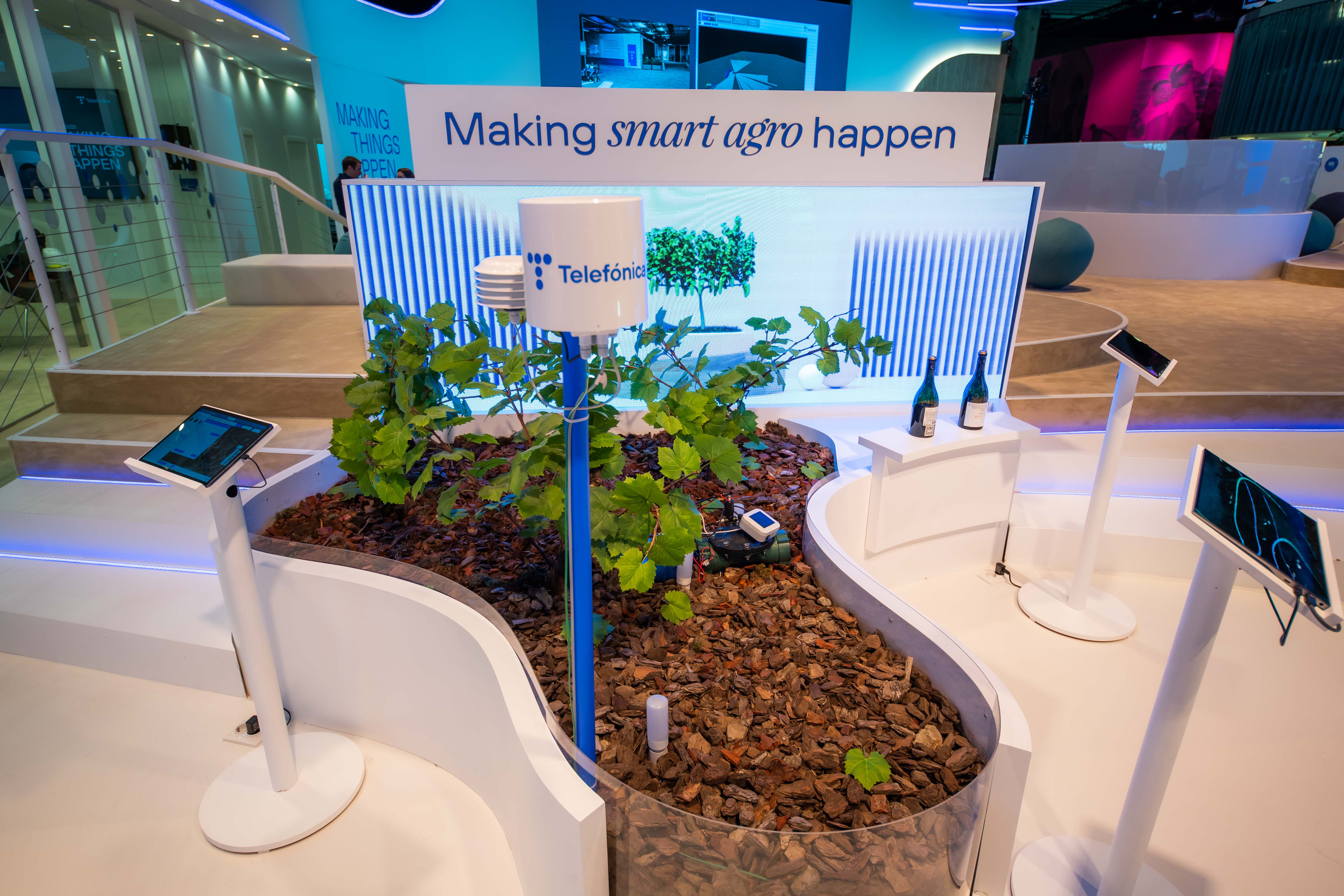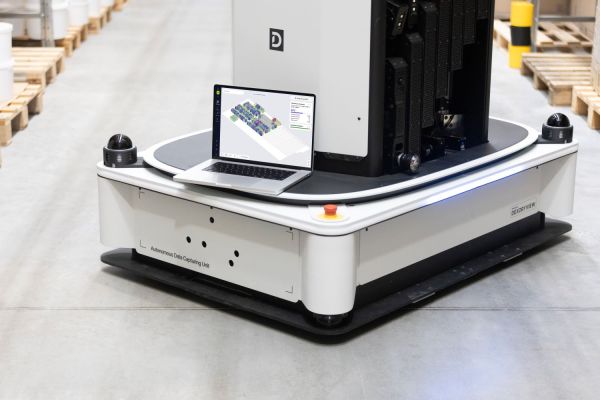Telefónica is exhibiting at the Mobile World Congress (MWC) its demo ‘Making Smart Agro happen’, applied to a vineyard of Bodegas Godeval in Galicia, with the aim of reiterating its commitment to reduce the digital divide between different economic activities and contribute to the promotion of a more efficient, competitive and sustainable agriculture thanks to new technologies.
The demo ‘Making Smart Agro happen’, developed by Telefónica Tech, has the necessary technological development to deploy in the field precision agriculture solutions, smart irrigation management, as well as the traceability of the production process and certification of the origin of the product through Blockchain.
Telefónica allows visitors to the MWC to remotely monitor the climate and soil conditions of a vineyard of Bodegas Godeval in Galicia in real time, showing a range of precision agriculture and smart irrigation management functionalities on the cloud platforms. To do this, a vineyard is recreated at the MWC where the IoT devices for monitoring climate and soil conditions and remote irrigation control are displayed, and three use cases are staged (smart irrigation, disease prevention and field notebook) in which visitors can experience first-hand the agronomic decision-making process.
The data obtained from sensors located in the field are transmitted with NB-IoT connectivity to a cloud platform that, together with the information provided by satellite images and integrating Artificial Intelligence capabilities, allows the farmer to improve decision-making aimed, among others, at reducing the use of inputs (fertilisers, phytosanitary products), improving agricultural production and optimising management time. The farmer will also be able to perform smart irrigation programming remotely based on information obtained from IoT devices (soil moisture), satellite images, or even rainfall forecasts.
The agricultural work carried out is recorded in the digital field notebook in accordance with current regulations and these are also certified and protected by TrustOS (Telefónica Tech’s Blockchain managed platform), guaranteeing the authenticity of the document and the integrity of the content, and facilitating processing with public administrations. The traceability solution with Blockchain allows all the information on the agricultural process of winemaking to be stored chronologically (place and date of production, cultivation phases, etc.) and easily accessed through a QR code on the label of the bottle, which provides a comprehensive view of the entire production and distribution process (among others) until it reaches the customer and guarantees that the final product is original and authentic.
In short, ‘Making Smart Agro happen’ shows farmers the benefits of digitising the countryside, helping them, for example, to plan field work more efficiently, prevent crop diseases and pests thanks to Artificial Intelligence algorithms, optimise management time and resources such as irrigation water, apply fertilisers and pesticides accurately and selectively, and adapt their production processes to be able to react to unforeseen events and changes in the environment.
Andrés Escribano, director of new business and Industry 4.0 at Telefónica Tech, says: “The digitisation of the countryside, through the implementation of technologies such as IoT, Artificial Intelligence, Cloud and Blockchain, provides farmers with fundamental information to make better decisions aimed at optimising the business and increasing productivity. In addition, smart farming has the ability to significantly reduce the use of fertilisers and pesticides, cut the number of trips and achieve water savings of up to 30%.”
‘Making Smart Agro happen’ has the Eco Smart seal, verified by AENOR, which identifies the environmental benefits associated with Telefónica’s products and services, such as their contribution to reducing water consumption and promoting the circular economy.
